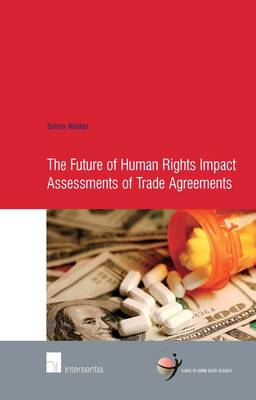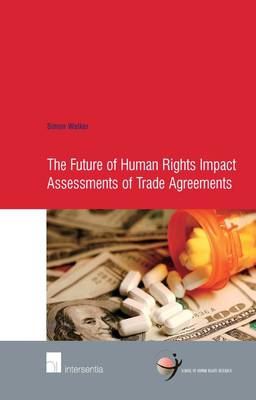
- Retrait gratuit dans votre magasin Club
- 7.000.000 titres dans notre catalogue
- Payer en toute sécurité
- Toujours un magasin près de chez vous
- Retrait gratuit dans votre magasin Club
- 7.000.0000 titres dans notre catalogue
- Payer en toute sécurité
- Toujours un magasin près de chez vous
Description
In an age of globalization, free trade should be synonymous with prosperity for all. Yet too often small farmers, indigenous peoples, people with HIV and others are left out of the picture. The Future of Human Rights Impact Assessments of Trade Agreements proposes a new way to make free trade work for all people. It examines how trade pacts can benefit people but can also threaten their basic human rights - to access food, medicines and education or to protect their cultural heritage - and develops a step-by-step process to identify the human impacts of trade before trade pacts are finalized. A case study examines the impact of a US-Central American trade agreement on access to medicines in Costa Rica to demonstrate how the step-by-step process works in practice. The process works, but more efforts are needed to make sure such assessments of trade policies become standard practice. Human rights NGOs and academics but also governments should lead the way in the future. The Future of Human Rights Impact Assessments of Trade Agreements is important for all people who believe that globalization can do more, not just for corporations and the economy, but for everyone, even the poorest.
About the book
'Simon Walker's book provides a comprehensive analysis of the current and future use of HRIA in the context of trade agreements, although several of its insights may apply beyond trade to other contexts. [...] The book effectively combines a detailed technical analysis of HRIA in the context of trade, with a broader, normative discussion about the impact of free trade on vulnerable or less powerful groups such as small farmers, persons living with HIV/AIDS or indigenous people. [...] it offers an in-depth conceptual analysis of the links between human rights and trade agreements [...].
The value of the book's framework lies in the depth of its underpinning conceptual analysis and the clarity and accessibility of its methodology. That value is further enhanced by its potential use beyond trade agreements, through the broad relevance of its framework and insights as well as the qualifying notes it makes on methodologies for different contexts. Walker's analysis of causation [...] makes another meaningful contribution to the global empirical discourse on human rights, with relevance for areas beyond trade. [...] Walker's work is both comprehensive and subtle. [...] the thoroughness and balance of its analysis render the book an indispensable resource for scholars, practitioners, and policy-makers working on human rights and trade, its account of the 'value added' of HRIA in particular, makes an invaluable contribution to ongoing debates.'
Siobhán McInerney-Lankford in 2011 NILR 450.
Spécifications
Parties prenantes
- Auteur(s) :
- Editeur:
Contenu
- Nombre de pages :
- 252
- Langue:
- Anglais
- Collection :
Caractéristiques
- EAN:
- 9789050959865
- Date de parution :
- 15-10-09
- Format:
- Livre broché
- Format numérique:
- Trade paperback (VS)
- Dimensions :
- 165 mm x 235 mm
- Poids :
- 471 g

Les avis
Nous publions uniquement les avis qui respectent les conditions requises. Consultez nos conditions pour les avis.






